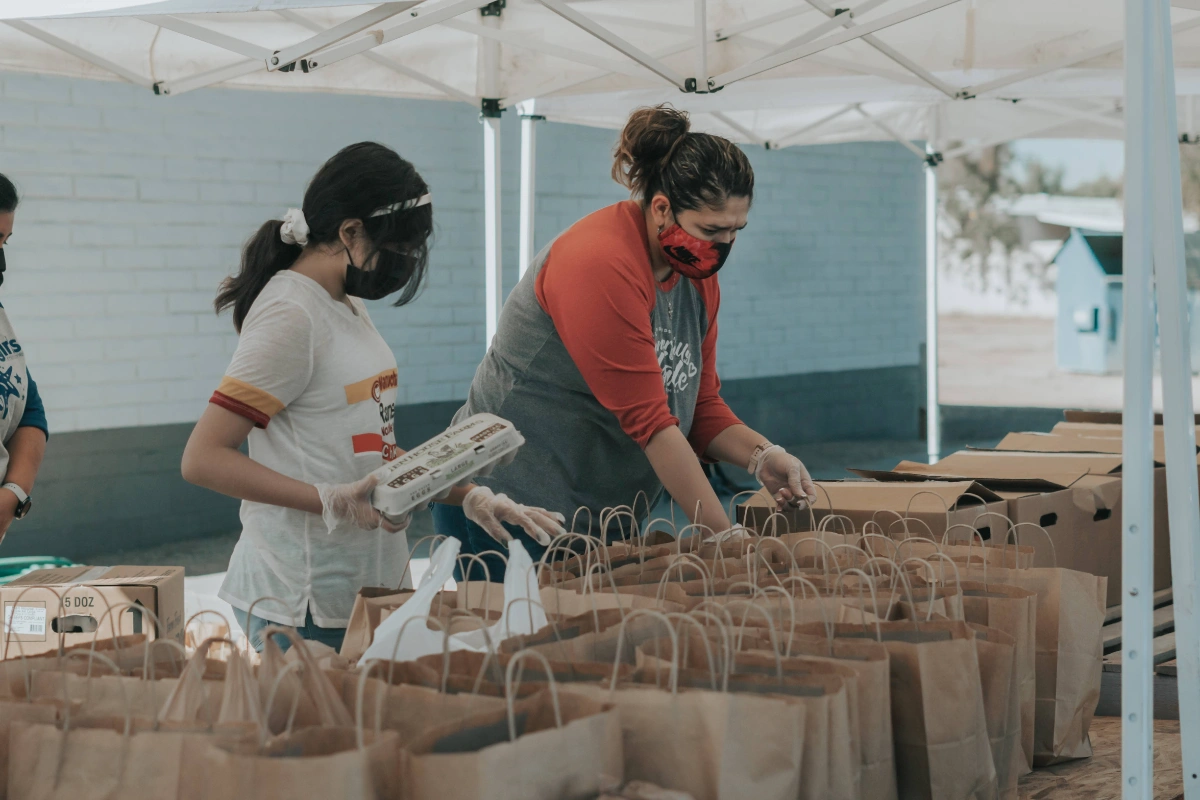


If you are passionate about helping people and want to make a real difference in their lives, a career in social work may be ideal for you. Social work is deeply rewarding but also demanding: to succeed, you’ll benefit from adaptability, emotional resilience, empathy, and strong communication skills. You don’t need to master all these traits immediately, many develop over time through training, mentorship, and real-world experience.
In this post, we’ll walk you through how to become a social worker in Australia, what the role involves, and useful tips to build a meaningful, sustainable career.
By the end, you’ll know the key steps to take if you’re ready to embark on your social work journey. Let’s dive in!
What Does a Social Worker Do?

A social worker is a professionally qualified practitioner who offers counseling, support, and advocacy to individuals, families, and communities facing complex personal, social, or structural challenges.
Typical areas of practice include:
- Mental health support
- Family and relationship challenges
- Addiction and substance use issues
- Financial hardship, unemployment, and housing insecurity
- Homelessness
- Discrimination, systemic inequality, or social exclusion
Social workers also play a systemic role—they advocate for social justice, influence public policy, and spearhead institutional change (for example, reforms in welfare, healthcare, or community services).
In short: social workers help people navigate life’s difficulties, build resilience, and access resources to improve their well-being.
How to Become a Social Worker in Australia

Social work is one of the few professions that offers you the chance to contribute meaningfully to society while developing a diverse and flexible career path. Here’s how to get started:
The best news is that if you want to learn how to become a social worker in Australia, you just follow these three basic steps:
1) Get the Right Certification
The foundational step is to complete an AASW-accredited social work degree. The Australian Association of Social Workers (AASW) sets the education standards that ensure a course meets professional requirements. AASW
Two common routes are:
- Bachelor of Social Work (BSW / BSW Honours): A 4-year full-time undergraduate degree. UNSW Sites+2Deakin University+2
- Master of Social Work (Qualifying / MSW): A 2-year postgraduate route for applicants who already hold a relevant undergraduate degree. UNSW Sites+1
If you don’t have a strong secondary school result or direct entry path, you might begin with a Certificate IV or Diploma in Community Services / Human Services, which can be a pathway into a Bachelor’s program. (These are typically delivered via Registered Training Organisations or TAFEs.)
2) Register With the Social Workers Board
While social workers are not yet fully regulated under the national health practitioner registration scheme, membership with the AASW is considered essential for legitimacy, professional recognition, and access to resources. AASW+3AASW+3AASW+3
- The AASW advocates for statutory registration and holds that title protection is crucial for public safety and professional standards. AASW+2AASW+2
- Through AASW membership, you can gain access to professional development (CPD), supervision opportunities, ethical support, and indemnity insurance. AASW+1
- AASW also offers an Accredited Social Worker (ASW) credential for practitioners who maintain high standards of practice and ongoing professional development. AASW
If you earned your social work qualification overseas, you’ll need to apply for International Qualification Recognition through the AASW to assess equivalency for membership and employment purposes. AASW
3) Get Experience
Theory is essential, but social work is a deeply applied profession. You should gain experience through:
- University placements / internships (many courses require 1,000+ hours of field education) ACAP+1
- Volunteering with NGOs, community organisations, crisis helplines, or local support services
- Entry-level roles such as case support worker, community development assistant, or support roles in human services
This experience helps you understand real-world challenges, build professional networks, and strengthen your resume.
As your career progresses, you can move into specialisations such as mental health, child protection, aged care, domestic violence, community development, research, academia, or management.
At Hader Institute of Education, learners gain access to comprehensive job search assistance through our Job Ready Program. This program provides personalised employment support to all enrolled learners, connecting them with partnered community service organisations that offer paid employment opportunities. Our goal is to ensure every learner is equipped with the skills, confidence, and industry connections needed to transition smoothly into the workforce.
Benefits of Becoming a Social Worker

There are many benefits to becoming a social worker, including:
- You can make a difference in people's lives: Social workers help people to cope with and manage the challenges in their lives. They also work to promote change in systems and institutions.
- You can work in a variety of settings: Social workers can work in hospitals, schools, community organisations, and government agencies. You can work with a variety of people: Social workers help people of all ages, from children to older adults. They also work with families, couples, and groups. There are many different specialisations: Social workers can specialise in areas such as child welfare, mental health, or aged care.
- You can have a rewarding career: Social work is a challenging and demanding profession, but it can also be very rewarding. Seeing the positive impact that you can make in people's lives is one of the most gratifying aspects of this job. If you're interested in helping people and making a difference in your community, then a career in social work could be perfect for you.
- Specialise in an area that interests you: There are many different specialisations within social work, so you can choose to focus on the area that interests you the most. Some of the most popular specialisations include; Child welfare, Mental health, Aged care, Community development, and Disability Services. No matter what your interests are, there's likely to be a social work specialisation that's perfect for you.
- Find the right job for you: Social work is a varied and rewarding profession, with many different job roles to choose from. You can work in a hospital, school, community organisation, or government agency. You can also choose to work with a specific population, such as children, families, or the elderly. No matter what your interests are, there's sure to be a social work job that's perfect for you.
Responsibilities of a Social Worker

As a social worker, you will have a variety of responsibilities, including:
Helping clients to cope with and manage the challenges in their lives: This may involve assisting clients in accessing services such as housing, financial assistance, and medical care.
Working with families and children: As a social worker, you will work with families and children, providing counselling and support to families who are experiencing difficulties or working with children who have been neglected or abused.
Providing crisis intervention: This may involve working with clients who are experiencing a personal crisis, such as relationship problems, substance abuse, or mental health issues.
Advocating for social justice: This may involve working with communities to identify and address social issues, such as poverty or discrimination.
Undertaking research: This may involve conducting research on the effectiveness of social services or on the needs of specific groups of people.
Writing reports and maintaining client records: As a social worker, you will be required to write reports and maintain client records.
Working with clients to promote change in systems and institutions: As a social worker, you may also work with clients to promote change in systems and institutions. This may involve working with clients to lobby for changes in legislation or policy or to advocate for the provision of services.
Educating the community about social issues: As a social worker, you may also be required to educate the community about social issues. This may involve giving presentations or workshops or writing articles or reports.
Providing support to clients in times of crisis: Social workers may also provide support to clients in times of crisis. This may involve providing counselling and emotional support to clients who are experiencing a personal crisis, such as relationship problems, substance abuse, or mental health issues.
The above list is not exhaustive but provides an overview of the types of tasks that a social worker may be required to undertake. In order to become a social worker in Australia, you will need to complete a Bachelor of Social Work (BSW) or
Skills Needed to Become a Social Worker

To thrive in social work, equip yourself with these core skills:
1) Communication & Active Listening
2) Empathy & Emotional Intelligence
Being able to understand clients’ perspectives, manage your own emotional responses, and maintain professional boundaries is critical.
3) Critical Thinking & Problem-Solving
Social work often requires navigating ambiguous or resource-constrained situations—analysing risks and designing intervention plans is core.
4) Organisational & Time Management Skills
You’ll juggle caseloads, deadlines, meetings, and documentation, so prioritisation is key.
5) Cultural Competency & Anti-Oppressive Practice
6) Advocacy & Policy Awareness
Understanding how social systems (laws, welfare, health, housing, justice) operate is essential so you can advocate for clients and systemic change.
Now that you know how to become a social worker and the skills you need to achieve this dream let's talk about social services courses and how they can be beneficial in your pursuit to become a social worker.
Should You Consider Social Services Courses?

If you are considering a career in social work, there are a few things you should take into account. One of the most important factors is whether or not you have the required skills and aptitude for the job.
While it is possible to learn some of the necessary skills on the job, such as communication and interpersonal skills, other skills, such as critical thinking and problem-solving skills, are best learned through education and training.
This is where social services courses can be beneficial.
Let's discuss some of the benefits of social service courses in detail:
1) Prepares You For Your Degree
Community Services courses can be beneficial if you are planning on studying for a degree in social work.
The coursework will give you a solid foundation in the theories and concepts of social work, which will be essential for your degree.
In addition, the practical component of social services courses will provide you with valuable hands-on experience.
This experience will be invaluable when you are applying for jobs and working with clients.
Common preparatory courses would be a Certificate IV or Diploma of Community Services.
2) Provides a Refresher Training
For those who are already working as social workers, social services courses can provide a much-needed refresher.
The coursework will help you to update your knowledge and skills and keep up to date with the latest developments in the field of social work.
In addition, the practical component of the course will give you an opportunity to put your skills into practice and brush up on your techniques.
This will help you to be at the top of your game and provide the best possible service to your clients.
3) Helps You Learn the Basic Skills
There are a few things you should take into account if you are considering a career in social work.
One of the most important factors is whether or not you have the required skills and aptitude for the job.
While it is possible to learn some of the necessary skills on the job, such as communication and interpersonal skills, other skills, such as critical thinking and problem-solving skills, are best learned through formal education and training.
This is where social services courses can be beneficial.
The coursework will give you a solid foundation in the theories and concepts of social work.
Other qualifications that offer similar work experience and career pathways to consider are Diploma of Mental Health or Diploma of Youth Work.
4) Equips You For Community Work
Community work is an important part of social work.
As a social worker, you will be working with a variety of different people from all walks of life.
It is important to have the necessary skills and knowledge to be able to effectively communicate with and help these people.
Social services courses can equip you with the skills and knowledge you need to be successful in community work.
The coursework will teach you how to effectively communicate with people from all walks of life and how to help them resolve their problems.
In addition, the practical component of the course will give you an opportunity to put your skills into practice and help people in your community.
5) Provides a Foundation for Volunteer Work
If you don't plan to fully become a social worker but still want to help out how you can, taking social services courses is a great step to take.
It provides you with a foundation of how social work works and what is needed to help those who are going through tough times.
Additionally, many volunteer opportunities will require some sort of certification or training before you can begin, so having that extra step already under your belt is extremely beneficial.
Volunteering is a great way to get your feet wet in the social work field without having to commit to a career just yet.
Plus, it looks great on resumes and applications for future jobs!
Where To Register for Social Services Courses?
Now that we've gone over some of the benefits of social services courses, you might be wondering where you can sign up for one.
There are a few different options available to you.
You can take courses at your local community college or university, or you can take them online.
At Hader Institute, we offer a range of social services courses that cover two main areas, which are:
- Mental Health - If you're especially interested in helping people who struggle with mental health challenges, you can take a Certificate IV or Diploma course to earn a nationally recognised qualification that will allow you to provide support in the mental health field.
- Alcohol and Other Drugs - You can also take a Certificate IV or Diploma course to earn a nationally recognised qualification that will allow you to help people who struggle with alcohol and drug issues.
If you need assistance with making the best choice for you, don't hesitate to contact us.
Conclusion
Becoming a social worker is a great way to help people in your community. It gives you the opportunity to make a difference in the lives of others.
If you're considering a career in social work, there are several opportunities available to you, and taking social services courses is a great way to get started.
Whether you're just getting started, you need a refresher, or you'd simply love to volunteer, there is something for you.
If you have any inquiries or questions, you can contact us here!



_With-Shapes.jpg)

.jpeg)
